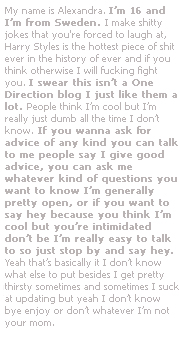How to eat slowly
date: 2012-10-28  time: 19:01:14
time: 19:01:14
 time: 19:01:14
time: 19:01:14 Busy people are experts in efficiency. Everything we do is quick, effective and goal-directed. But when it comes to eating, efficiency is not the highest virtue. Quick eating almost always results in overeating. This is because your brain is not focused on the eating process, but on the goal of filling your stomach. Unfortunately, a full stomach does not automatically create satiety in the brain. Satiety is only percieved after a culmination of sensory cues and signals indicate a meal is over. Some of these cues are internal, such as spending time chewing, tasting and swallowing. Others are external, like seeing an empty plate or noticing a restless dining partner. Only after about 20 minutes will you actually be able to tell if your belly is full or not, but if you've been stuffing your face the entire time it is already too late. You can learn to eat more slowly by focusing on satiety cues rather than on cleaning your plate. Here are 12 tips for learning how to slow down and eat less.

12 Tips For Eating Slowly
1. Practice.
Eating quickly is a habit that needs to be broken. Make a point to practice mindful eating by scheduling it into your day. Write it in your calendar, leave notes on your fridge and send yourself reminders before meals until your new habits become automatic. Habits typically take 3-4 weeks to develope.
2. Sit at a table.
Sitting at a table to eat tells your brain you are having a meal. If you eat while running errands or standing at the counter you can quickly lose track of how much you've eaten. Even if you eat a lot while standing, you may still feel like you haven't had a meal and want to eat more later.
3. Serve small portions.
A clean plate is an incredibly powerful cue that a meal is finished. For this reason, large portion sizes often lead to overeating simply because of our tendency to eat what is in front of us. Serve yourself smaller portions as a reminder to take your time and savor each bite. Use small plates so your brain doesn't perceive the portions as skimpy.
4. Remove distractions.
If you are reading or watching TV, you are not paying attention to the food you put into your mouth. I know you are busy and want to multitask, but resist the urge for 15 minutes and eat a real meal. I admit I'm bad at this one, but I always eat less if I go offline while I eat.
5. Chew.
You might think that you chew your food, but there's a good chance you are swallowing a lot of it whole. Take smaller bites and chew your food thoroughly. Notice the texture of what you are eating and appreciate what it adds to your meal. This is something I need to remind myself of directly before I eat, so I keep this on my to-do list.
6. Drink.
Another way you can force yourself to slow down is to consciously sip your drink throughout your meal. This requires you to put your fork down, chew and swallow before eating more. It also adds liquid to your stomach and can help you feel more full. Water is a perfect choice, but even sipping wine can slow down your meal.
7. Put down your fork.
The classic recommendation to put down your fork (or sandwich) between bites has stuck around for one simple reason: it works. When we are not eating mindfully our hands go into shoveling mode, where your fork is primed with another bite almost instantly after popping the last one in your mouth. Putting your fork down forces you to relax a bit and focus on chewing what you already have.
8. Have a conversation.
You only have one mouth, and if you are using it to talk it's really difficult to shove food into it. Eat with friends, have a great conversation and use this as an opportunity to slow down your meal.
9. Eat with other slow eaters.
We all have an unconscious tendency to imitate people we are near. If you are dining with a ferocious eater, you might find yourself mimicking their bad habit and eating quickly just to keep up. To train yourself to eat slower, try finding slow eaters to influence you instead.
10. Don't eat when you're starving.
Nothing makes me more likely to eat quickly than being famished. But sooner or later circumstance will get the better of you and you'll end up hungrier than you should be. I always carry almonds or other nuts around with me for times like this, and I eat exactly 10 nuts to tide me over for an hour or so. After about 15-20 minutes, my hunger subsides enough for me to regain control of my eating speed.
11. Dim the lights.
Environment can have a big impact on our mental state, and you can set your dinner mood by dimming lights or lighting candles. Dim lights induce an inner calmness and make it easier to slow down. On the flip side, be careful when eating under bright, fluorscent lights as they can spur frantic overeating.
12. Play mellow music.
Slow, mellow music can also help set an appropriate eating pace. + is one of my favorite dinner albums, with Ed Sheeran. However, this trick only works if the music is truly slower than your natural, silent eating pace. If your music is any faster you may experience the opposite effect.







